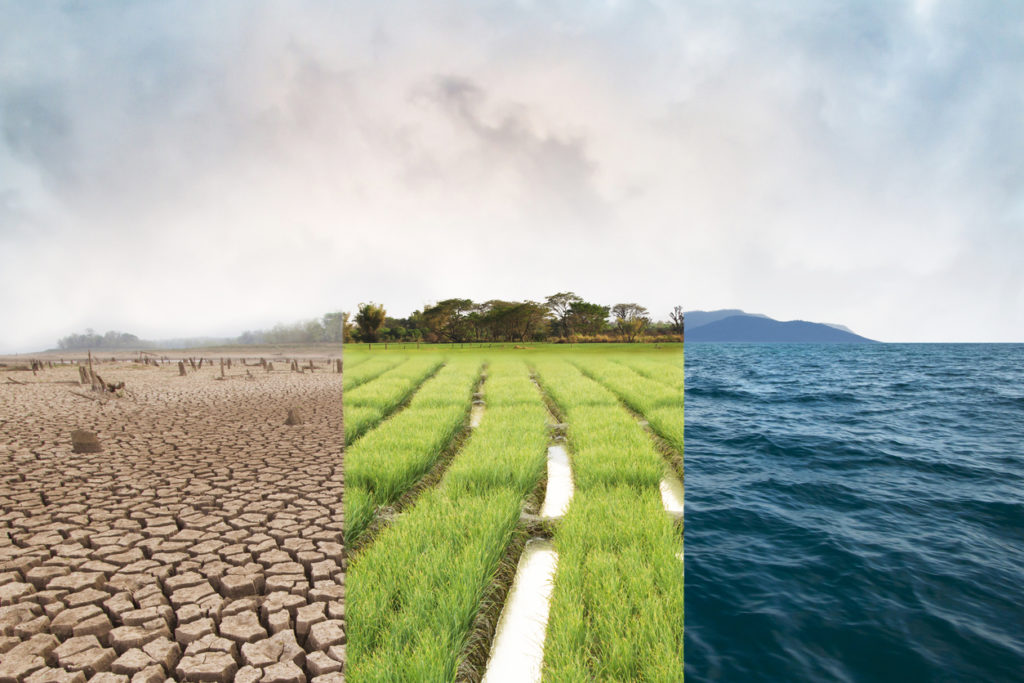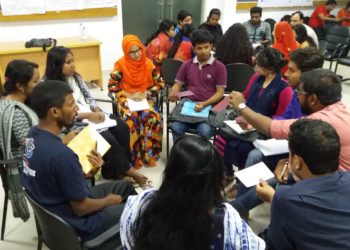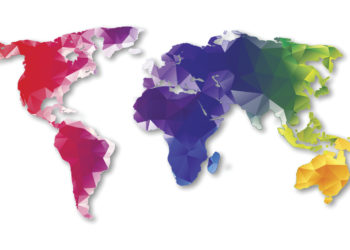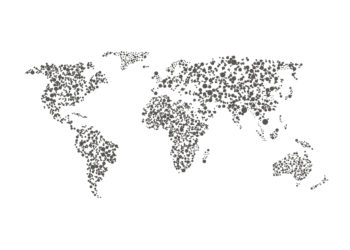Those who have been following international news on climate change lately may have noticed that ‘climate change’ is now increasingly being called ‘climate emergency’. Although such a change in terminology is a result of worldwide campaigns – by striking school children and adults alike – the slogans on the streets and discussions at the global level are based upon hardcore evidence, gathered by climate scientists, from all over the world.
The most well-known of all documents showing us that ‘climate change is real and man-made’ are the assessment reports by the Intergovernmental Panel on Climate Change (IPCC). In 2007, the IPCC, 19 years after its founding, received the Nobel Peace Prize, jointly with former USA Vice-President Al Gore, for its outstanding contribution to making us understand climate change.

The most recent in the series of these reports, the volumes of the IPCC Fifth Assessment Report, were published in 2013 and 2014. The report was a result of thousands of researchers, scientists, practitioners, and policymakers from all over the world putting together several years of effort as authors, scientists, reviewers, and editors.
As the drafting of the Sixth Assessment Report is currently going on, an event was organized in Dhaka, Bangladesh recently to share the IPCC assessment process with Bangladeshi stakeholders, especially the younger ones, to encourage them to get involved in this unparalleled global effort of evidence compilation on climate change.
As I was listening to the experiences and thoughts of the authors of the past IPCC reports, I recognized three aspects of IPCC engagement, from a research communication point of view.
First, the IPCC reports are basically analyses of our updated knowledge on climate change. And these are almost exclusively based on published peer-reviewed journal articles. In rare cases, when journal papers are not available on an important topic, the authors of the IPCC report could refer to non-peer-reviewed documents – ‘grey literature’ as we call them – with proper justification. The IPCC reports are a fantastic example of how scholarly communication can be directly used to generate evidence and contribute to informed policy and decision making and action, at the global scale. By publishing their research in peer-reviewed journals, researchers, therefore, can help this global exercise.
Nevertheless, the IPCC assessment is a long, rigorous process. Its output is as good as the people involved in it, showing honest commitment accompanied by timely delivery. The IPCC reports, however, do not help authors or reviewers per se to score points in getting jobs, promotions, or tenures, since these are not research papers published in journals with Impact Factors. It is, therefore, tricky to explain why researchers, particularly early-career researchers, should get involved into this voluntary process. That brings in my second point – what could motivate researchers to spend time and energy on a global assessment?
The value of IPCC and similar global engagements lie elsewhere. They create opportunities, especially for young researchers, to work with leading scientists of particular disciplines and learn the subject matter − extensively and intensively. They create networks among peers, often developing professional relationships lasting a lifetime. There is also tremendous satisfaction for the individuals in being part of outstanding global collaborations of evidence generation to influence global policies and actions.
My third point is around the issue of inclusion. Since an IPCC report is a global effort, diversity in its authorship in terms of geography, gender, or experience are ensured as much as possible. This, however, could not be said for the literature cited in these reports because of the significant regional inequality in climate change research’s communication. An analysis of climate change publications showed that, between 1991−2000 and 2001−2010, there was a seven to eight times increase in literature on the global North. While 22 per cent of global climate literature from 2001−2010 was about Asia, literature on Africa and South America was much more limited. Another analysis of about 470,000 climate change articles published between 2000 and 2014 showed that research on low-income countries were mostly done by researchers affiliated with developed countries.
Reducing geographical inequality in presenting evidence in the IPCC reports could be a motivation for scientists from the global South. I was an expert reviewer of the IPCC Fifth Assessment Report. My engagement helped me to recommend research papers by Bangladeshis, on Bangladesh, which is one of the most climate vulnerable countries in the world, but was trailing behind in publishing the situation on the ground in peer-reviewed journals. At the institutional level, the Gobeshona Young Researcher Programme of the International Centre for Climate Change and Development (ICCCAD) and the USAID has trained young Bangladeshi climate researchers to publish their work in peer-reviewed journals, making this work available to be cited in the next IPCC report.
The IPCC assessment is a good example of global scientific effort of evidence-informed policy-influencing. Whether we are established scientists or early-career researchers, we should get involved in such voluntary processes, making them as inclusive and rigorous as possible. Large-scale initiatives that help us to understand our nature and its changes, and guide our actions, require us to act collectively. Only altruistic enthusiasm in research can make it happen.
Discussion
3 Thoughts on "Why Should Researchers Volunteer for Global Evidence Gathering Processes?"
A related article has been published today on AuthorAID. It defines mentoring of young researchers and their mentors, and suggests what could be done to make a mentoring programme effective.
‘Early-Career Researchers and Their Mentors’: https://bit.ly/2XDSu4w
Welcome, Haseeb, and thank you for an excellent post. Building bridges between formal scholarship and policy is essential if policy is to be evidence-based, but it is hard to do because there are few touch points between academia and policy making, especially at an international level. Policymaking is dominated by national-level thinking and the rise of inward-looking governments (USA, UK, Italy, Hungary spring to mind) is a threat to what little inter-governmental policymaking there is. This is at stark odds with the ever-growing internationalisation of research, but, as you point out, even this internationalisation is limited in scope since it mainly occurs between developed nations. It also doesn’t help that those with an inward-looking, nationalistic, perspective also tend to be dismissive of what experts have to say. I started my career with academic publishers but switched a couple of decades ago to being the publisher at an intergovernmental organisation. I was struck then by how separate the two worlds were and sadly I have to say that these two worlds are still quite separate: content from academics is published in one ‘box’, the paper, content from IGOs in another, the ‘report’. Papers and reports are then published on separate platforms which limits cross-fertilisation: its hard for academics to find reports and for policy makers to access papers. Of course, it is also hard for anyone outside academia to access papers, not just because of paywalls but because of the way papers are written. But you’re absolutely right: if bridges between academia and policymaking remain weak, policymaking will be sub-optimal. There is much to be done.
Thanks Toby, for sharing your thoughts and observations on the challenges around inter-governmental policy-making and treatment of different sources of evidence (paper vs report) differently. I believe, we need to keep the discussion going to make the bridge between academia and policymakers stronger, at national and international arena.


